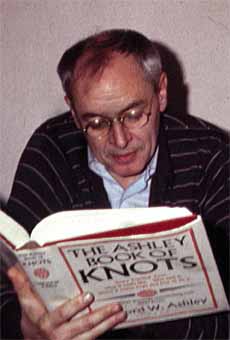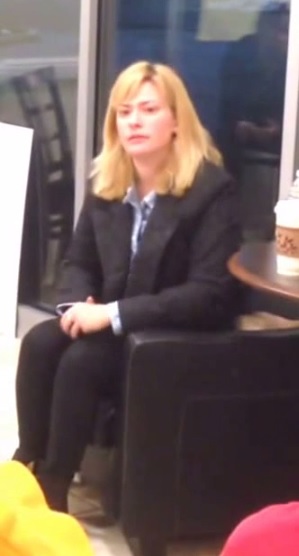Related Research Articles

Kay Redfield Jamison is an American clinical psychologist and writer. Her work has centered on bipolar disorder, which she has had since her early adulthood. She holds the post of the Dalio Professor in Mood Disorders and Psychiatry at Johns Hopkins University School of Medicine and is an Honorary Professor of English at the University of St Andrews.
Clanging is a symptom of mental disorders, primarily found in patients with schizophrenia and bipolar disorder. This symptom is also referred to as association chaining, and sometimes, glossomania.

Girl, Interrupted is a best-selling 1993 memoir by American author Susanna Kaysen, relating her experiences as a young woman in an American psychiatric hospital in the 1960s after being diagnosed with borderline personality disorder.

Paul Eugen Bleuler was a Swiss psychiatrist and humanist most notable for his contributions to the understanding of mental illness. He coined several psychiatric terms including "schizophrenia", "schizoid", "autism", depth psychology and what Sigmund Freud called "Bleuler's happily chosen term ambivalence".
Avolition or amotivation as a symptom of various forms of psychopathology, is the decrease in the ability to initiate and persist in self-directed purposeful activities. Such activities that appear to be neglected usually include routine activities, including hobbies, going to work or school, and most notably, engaging in social activities. A person experiencing avolition may stay at home for long periods of time, rather than seeking out work or peer relations.

Ronald David Laing, usually cited as R. D. Laing, was a Scottish psychiatrist who wrote extensively on mental illness—in particular, psychosis and schizophrenia. Laing's views on the causes and treatment of psychopathological phenomena were influenced by his study of existential philosophy and ran counter to the chemical and electroshock methods that had become psychiatric orthodoxy. Laing took the expressed feelings of the individual patient or client as valid descriptions of personal experience rather than simply as symptoms of mental illness. Though associated in the public mind with the anti-psychiatry movement, he rejected the label. Laing regarded schizophrenia as the normal psychological adjustment to a dysfunctional social context, although later in life he revised his views.

Links between creativity and mental health have been extensively discussed and studied by psychologists and other researchers for centuries. Parallels can be drawn to connect creativity to major mental disorders including bipolar disorder, autism, schizophrenia, major depressive disorder, anxiety disorder, OCD and ADHD. For example, studies have demonstrated correlations between creative occupations and people living with mental illness. There are cases that support the idea that mental illness can aid in creativity, but it is also generally agreed that mental illness does not have to be present for creativity to exist.
Works of fiction dealing with mental illness include:

Marya Justine Hornbacher is an American author and freelance journalist.

Girl, Interrupted is a 1999 American biographical psychological drama film written and directed by James Mangold, from a screenplay by Mangold, Lisa Loomer, and Anna Hamilton Phelan, and based on the 1993 memoir of the same name by Susanna Kaysen. Starring Winona Ryder, Angelina Jolie, Clea DuVall, Brittany Murphy, Elisabeth Moss, Jared Leto, Angela Bettis, Jeffrey Tambor, Vanessa Redgrave, and Whoopi Goldberg, the film follows a young woman who spends 18 months institutionalized at a psychiatric hospital following a suicide attempt.

Darkness Visible: A Memoir of Madness is a memoir by American writer William Styron about his descent into depression and the triumph of recovery. It is among the last books published by Styron and is among his most celebrated.
Elyn R. Saks is associate dean and Orrin B. Evans Professor of Law, Psychology, and Psychiatry and the Behavioral Sciences at the University of Southern California Gould Law School, an expert in mental health law, and a MacArthur Foundation Fellowship winner. Saks lives with schizophrenia and has written about her experience with the illness in her award-winning best-selling autobiography, The Center Cannot Hold, published by Hyperion Books in 2007. She is also a cancer survivor.
Folie à deux, also known as shared psychosis or shared delusional disorder (SDD), is a psychiatric syndrome in which symptoms of a delusional belief are "transmitted" from one individual to another.
The relationship between religion and schizophrenia is of particular interest to psychiatrists because of the similarities between religious experiences and psychotic episodes. Religious experiences often involve reports of auditory and/or visual phenomena, which sounds seemingly similar to those with schizophrenia who also commonly report hallucinations and delusions. These symptoms may resemble the events found within a religious experience. However, the people who report these religious visual and audio hallucinations also claim to have not perceived them with their five senses, rather, they conclude these hallucinations were an entirely internal process. This differs from schizophrenia, where the person is unaware that their own thoughts or inner feelings are not happening outside of them. They report hearing, seeing, smelling, feeling, or tasting something that deludes them to believe it is real. They are unable to distinguish between reality and hallucinations because they experience these hallucinations with their bodily senses that leads them to perceive these events as happening outside of their mind. In general, religion has been found to have "both a protective and a risk increasing effect" for schizophrenia.

Susannah Cahalan is an American writer and author, known for writing the memoir Brain on Fire: My Month of Madness, about her hospitalization with a rare auto-immune disease, anti-NMDA receptor encephalitis. She published a second book, The Great Pretender: The Undercover Mission That Changed Our Understanding of Madness, in 2019. She also works as a writer for the New York Post. Cahalan's work has raised awareness for her brain disease, making it more well-known and decreasing the likelihood of misdiagnoses.

Mambalikalathil Sarada Menon was an Indian psychiatrist, social worker and the founder of Schizophrenia Research Foundation (SCARF), a Chennai-based non-governmental organization working for the rehabilitation of people afflicted with schizophrenia and other mental disorders. An Avvaiyyar Award recipient, she was a former Madras Medical Service officer and the first woman psychiatrist in India. The Government of India awarded her the third highest civilian honour of the Padma Bhushan, in 1992, for her contributions to society.
Quiet room or silent room may refer to:
Rye Psychiatric Hospital Center was a 34-bed investor-owned mental health facility located in Rye, New York.

Michael B. Laudor is an American graduate of Yale Law School who made national headlines in 1995 for having successfully graduated while suffering from schizophrenia; and again in 1998 for stabbing his pregnant fiancée, Caroline Costello, to death during an episode of psychosis.
References
- ↑ "Nonfiction Book Review: The Quiet Room: A Journey Out of the Torment of Madness by Lori Schiller, Author, Amanda Bennett, With Warner Books $22.95 (270p) ISBN 978-0-446-51777-5". PublishersWeekly.com. Retrieved 2017-11-15.
- 1 2 3 4 Lombardi, Kate Stone (1994-10-02). "Breaking the Deadly Hold Of Schizophrenia". The New York Times. ISSN 0362-4331 . Retrieved 2017-11-15.
- 1 2 3 4 Schiller, Lori (1994). The Quiet Room-- A Journey out of the Torment and Madness . Warner Books. ISBN 978-0-446-51777-5.